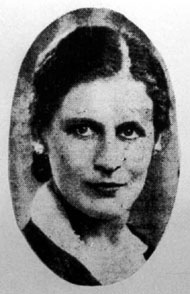 Paul McGuire was trained as an historian, but the circumstances of his life made him a student of history in the making rather than of history in the past.
Paul McGuire was trained as an historian, but the circumstances of his life made him a student of history in the making rather than of history in the past.
He came to see that Australia could have been discovered, explored, settled and finally governed only by a nation with highly developed maritime skills, and the men and means of using them.
Being an island, Australia can be defended only by her power to control and use the seas which surround her and therefore preserve her independence as a nation. She too must develop the skills and resources of men and materials which will enable her to do this.
Her people must be constantly reminded of the fact that their entire national prosperity and their very existence as a nation depend on this.
During 1938-9 we were in the U.S., Paul on a lecture tour and I gathering material for a book on Pacific seaways.
My searches took me to the Library of Congress, Washington DC, and to the Maritime Library of Yale University at Newhaven.
I came to realise how much Australia needs a maritime library, our immense wealth of maritime material being so diffused it is difficult to do one's research.
 In 1939, we crossed to Europe and were in France when World War II was declared. For the whole of 1940 we moved about the world - to Timor, Java, Sumatra, Singapore and Malaya, South America and Canada.
In 1939, we crossed to Europe and were in France when World War II was declared. For the whole of 1940 we moved about the world - to Timor, Java, Sumatra, Singapore and Malaya, South America and Canada.
More and more we saw the world in terms of the sea, that global network by which we were free to travel the globe, while the German armies bottled up in Europe tried unsuccessfully to cross the Channel, Hitler was forced to defend his European fortress while the Allies used the seas and oceans of the world to exert pressure at this point and that as needed.
By 1942, we were both back in Australia and both at Naval Headquarters in Melbourne, Paul with the NID and I completing my two books about the RAN. We were now firmly convinced that it was imperative that some means be devised to keep the Australian people constantly educated and reminded of their dependence on the sea, in other words, acquainted with the basic facts of sea power.
We resolved to found a library as one means of furthering this purpose.
The Library has been founded, and one of its important functions is to teach each generation of Australians how to use the sea.
You will recognise that your presence here today is part of that plan.
By offering an award for maritime achievement we hope to encourage those who are doing good work in this area, also to make the mass of Australians aware of their obligations to support such work.
"The man or woman who humbly but deeply realizes that he or she has labored with the utmost faithfulness to a worthy end can never be a real failure.
Pressing on toward "the mark for the prize," not the prize itself, is the thing."B.C. Forbes
In such a group as this, it is hardly necessary to point out that these objectives do not change with the passage of time. Whether you use the sea with canoes, windjammers or steamships; whether your cargoes travel by barge, cargo vessel, or container ship; whether you defend your island position by galleons, frigates, battleships or aeroplanes; whether your weapons are bows and arrows, culverins, muskets, torpedoes or MX missiles, your objective is the same; to preserve your freedom to use the sea and deny its use to the enemy.
We ask your co-operation, gentlemen, in the furthering of this programme and thank you for your invaluable and expert help.
(These words were spoken at a meeting of the sub-committee involved in the special award for which entries closed on November 30, 1985.)
reprinted from The Traverse Board June 1985
